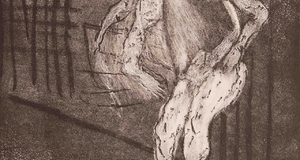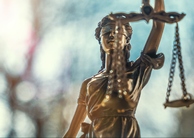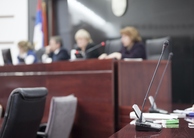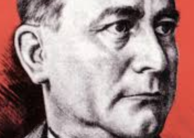Diverging Discontent: Examining the PATRIOT Act's Passage in Congress Under the Bush Administration
By
2012, Vol. 4 No. 10 | pg. 1/1
IN THIS ARTICLE
On October 26, 2001, President George W. Bush signed the USA PATRIOT Act in response to the September 11, 2001 terrorist attacks. The Act, by Congress just six weeks after the attacks with virtually no public debate, greatly-expanded the executive branch’s power to investigate possible domestic terrorism (Cheney, 2005, p. 1717; Chang, 2001). Rather than create new laws, existing laws were strengthened. However, members of Congress were still alarmed at possible civil liberties violations (Cheney, 2005, p. 1717; Seamon & Gardner, 2005, p. 321). Like many war-time Presidents, such as Woodrow Wilson and Franklin D. Roosevelt, George W. Bush inherited an American public that looked up to their chief executive for strong leadership. The dramatic increase in executive powers has surpassed the powers of every post-Watergate President and, arguably, FDR’s “New Deal” policies (Milbank, 2001). Right after the USA PATRIOT Act was signed, President Bush’s administration—particularly Attorney General John Ashcroft—had to justify the necessity of the new policies enacted. This paper aims to analyze the Bush administration’s role in developing the USA PATRIOT Act, persuading Congress to pass it and the subsequent receptions by members of Congress. There Was a Typical Narrowing of Civil Liberties Due to Overwhelming PanicAlmost immediately after Bush signed the PATRIOT Act, civil liberties advocates condemned the Act because many of its powers extended beyond terrorism per se (McCarthy, 2002, p. 450). In essence, the Attorney General simply had to say “terrorism” to seize documents containing sensitive information (Mell, 2002, p. 418). Since there is no oversight, these sensitive documents did not even need to be related to terrorism. As such, probable cause was absent (Frank, Chertoff, Cole, Taylor & Wilkinson, 2002, 1506; Chang). Even if the expanded powers were used in an ethical manner, there was no explicit promise made to use these far-reaching powers responsibly (Lardner, 2001). Those who criticized the USA PATRIOT Act shortly after its passage cited that the definition of “domestic terrorism” was not defined specifically enough (Frank, Chertoff, Cole, Taylor & Wilkinson, 2002, 1506; Chang). Since due-process and first amendment rights were narrowed, critics hypothetically-reasoned that groups who advocate beliefs that were considered a “nuisance” by the Attorney General (such as abortion, civil rights, etc.) could be immediately removed and prosecuted, even if they were not violent (Mell, 2002, p. 410). In the past, only 28 groups were denied entry into the United States (Purdy, Berke, Drew, Greenhouse, Myers, Pear & Weiser, 2001). Now, however, this number has increased dramatically because the Attorney General can make a more subjective judgment.The Bill Presented by the Justice DepartmentFor the most part, the bill that was presented to Congress by the Justice Department was almost-identical to the PATRIOT Act in its final form. However, the major significant difference is the “purpose” provision of the Foreign Intelligence Surveillance Act of 1978 (FISA) (Seamon & Gardner, 2005, p. 323). The FISA was passed so the surveillance undertaken by the executive branch in foreign countries was limited. Members of Congress did not deny the President’s inherent ability to engage in foreign electronic surveillance in foreign countries. However, Congress denied the un-checked use of this power because it had to be exercised under the strict supervision of Congress (Seamon & Gardner, 2005, p. 336) The response to the USA PATRIOT Act in Congress. Who likes it, who doesn’t?Bipartisan Views Among Supporters and Opponents of the Act In Congress, the PATRIOT Act received overwhelming bipartisan support. In the House, the vote was 356 to 66 and the Senate saw a remarkable 98 to 1 vote. Many individuals within both political parties have agreed that the PATRIOT Act was passed too quickly. However, there has been significant collective agreement that the laws fighting terrorism needed to be updated, as there were significant advances in technology used to commit terrorism (Lebowitz & Podhesier, 2002, p. 879-880). A bi-partisan view was voiced Democratic Senator Edward Kennedy of Massachusetts and Republican Senator Sam Brownback of Kansas. They believed that the Immigration and Naturalization Service (INS) could not, due to funding and technology restrictions, adequately protect the entirety of Canada’s borders from terrorists entering the United States illegally (Lebowitz & Podhesier, 2002, p. 881-882) This point was especially important point, since the 9/11 terrorists entered on legal visas (McCarthy, 2002, p. 438). Republican Supporters of the Act Several senate members affiliated with Bush’s Republican party came rushing to the President’s defense, arguing that the PATRIOT Act was justified. Senator Orrin G. Hatch of Utah, the Judiciary panel’s ranking Republican, described criticism of the anti-terrorism measures as "hysterical" because “These laws will help ensure that Americans will never be violated in the way we were on September 11…" (Eggen, 2001; Lancaster, 2001). Senator James Sensenbrenner Jr. of Wisconsin, who chaired the House of Representatives, pointed to the overwhelming bipartisan support for the bill in the Senate. Given that the bill that was circulating for more than a week, he remarked, “We're really not dealing with new ideas here…" (Lancaster, 2001). Democratic Opponents of the Act Arguably, the most influential opposing senator that emerged in the spotlight of Congress was Russ Feingold, a Democratic senator from Wisconsin. His spotlight was in some ways inevitable, as he was the only senator who voted against the bill in the Senate. Critics were subsequently accused by then Attorney-General John Ashcroft of “fear mongering” because, if critics did not support extreme measures for an extremely-dangerous situation, they would be “abetting terrorists” (Locy, 2001). However, Feingold condemned the rhetoric of Ashcroft as "…trotting out phrases to stop people from raising some questions" (Locy, 2001). According to Democratic Representative Barney Frank of Massachusetts’ 4th congressional district, the Act’s quick passage prevented people from raising such questions. Shortly after the Act was passed, he saw the Act’s passage as “the least democratic process for debating questions fundamental to democracy I have ever seen” (Lancaster, 2001). Republican Opponents and Democratic Supporters of the Bill Indeed, people did follow in Feingold’s footsteps and raised questions about the inherent legality and effectiveness of the USA PATRIOT Act. Even those Democratic senators who voted for the bill raised many questions afterwards. Similarly, members of the President’s Republican party raised important points that needed to be considered. Although Feingold was the only adamant dissenting senator, other senators openly-condemned the Act or—in the case of some Democratic senators—offered less-stinging condemnation in the form of wary caution. Republican Senator Chuck Hagel of Nebraska believed that the 1947 National Security Act invalidated the PATRIOT Act. Since executive wartime powers are typically-transparent with Congress, Hagel believed that Bush had “…put out a public document telling the world he doesn't trust the Congress" (Milbank, 2001). However, Democratic Senator Patrick Leahy of Vermont was not necessarily opposed to the bill. He believed that the PATRIOT Act’s significant Executive power expansion should be used with caution. He remarked, "When we're talking about setting aside our criminal justice system for something like this, we end up looking more and more like some of the things that we are fighting against" (Davis, 2002, p. 13). How the Bush Administration Defended the PATRIOT ActAlthough the PATRIOT Act was passed by overwhelmingly large majorities in both chambers of Congress, the Bush administration experienced a significant amount of backlash by some members of Congress, as well as outside groups. For the most part, President Bush himself kept quiet while more public members of his administration, such as John Ashcroft, defended the Act. In order to keep the PATRIOT Act on a solid-footing, the Bush administration had to defend and ultimately justify why the PATRIOT Act was a necessary addition to U.S. laws. The Act’s broad definition of terrorism was considered a necessity by the Bush administration. Since the Act could cover many forms of terrorism, it was more likely going to fall under the law in the event of an unexpected, catastrophic terrorist like 9/11 (McCarthy, 2002, p. 449). Likewise, 9/11 dramatically proved that terrorism was at the forefront of national security. Having a strict, yet broadly-defined, body of laws would help the nation to be prudently-cautious, rather than under-prepared, for another terrorist attack. Inevitably, there would be some completely-innocuous groups that would be accused of terrorism. Therefore, much of the laws in the PATRIOT Act remained at the discretion of the U.S. Attorney General, who could prudently determine if there was indeed a “clear and present danger” (McCarthy, 2002, p. 452). Since the future of terrorism was unpredictable, the Bush administration took a “wait-and-see” approach by including sunset provisions to determine if some of the more controversial parts of the PATRIOT Act were necessary in the future (Nieland, 2007, p. 1230-1231). Given that technology continually advances in the digital age, many terrorist groups have exploited developing technology to perpetrate acts of terrorism on an unsuspecting American public. Like most members of Congress, Bush and Ashcroft were both vocal proponents of advancing the technology used to combat terrorism. Much of the Bush administration pointed out that, due to the Anthrax deaths in the Washington-area, another attack may have been imminent (Davis, 2002, p. 5; McCarthy, 2002, p. 435). ConclusionThe USA PATRIOT Act, passed just weeks after the September 11, 2001 attacks, became a defining moment in George W. Bush’s Presidency. Bush, who had been in office for less than eight months when 9/11 occurred, saw the main theme of his administration shift from domestic affairs to those of an international focus. Amidst the horrors of the 9/11 attacks experienced by the American public, the Act itself provoked a new type of controversy as to how prepared the U.S. should be against future acts of terrorism. Given that the domestic-international shift occurred abruptly, Bush’s administration—rather than Bush himself—spoke on behalf of the Bush administration on defending and justifying the USA PATRIOT Act to an alarmed public. Over ten years after the attacks, the public continues to monitor how it assesses terrorist threats to national security. ReferencesChang, N. (2001). The USA PATRIOT Act: What's So Patriotic About Trampling on the Bill of Rights? Retrieved from http://ccrjustice.org/v2/reports/docs/USA_PATRIOT_ACT.pdf. Cheney, E.A. (2005). Leaving No Loopholes for Terrorist Financing: The Implementation of the USA PATRIOT Act in the Real Estate Field. 58 (5), 1705-1733. Davis, D.H. (2002). The Dark Side to a Just War: The USA PATRIOT Act and Counterterrorism’s Potential Threat to Religious Freedom. Journal of Church and State. 44 (1), 5-17. Eggen, D. (2001, October 26). Tough Anti-Terror Campaign Pledged; Ashcroft Tells Mayors He Will Use New Law to Fullest Extent.The Washington Post, pp. A01. Frank, B., Chertoff, M. Cole, D. Taylor Jr S., and Wilkinson, B. (2002, March 6). Panel Discussion the USA PATRIOT Act and the American Response to Terror: Can We Protect Civil Liberties After September 11? American Criminal Law Review. 1501-1533. Lancaster, J. (2001, December 2). Hearings Reflect Some Unease With Ashcroft's Legal Approach.The Washington Post, pp. A25. Lancaster, J. (2001, October 14). House Approves Anti-Terrorism Bill; Bush Cheers Lawmakers' Quick Action, but Civil Liberties Advocates Are Alarmed. The Washington Post, pp. A12. Lancaster, J. (2001, October 25). House Approves Terrorism Measure; Bill Grants Bulk Of Bush's Request.The Washington Post, pp. A01. Lardner, G. (2001, November 16). On Left and Right, Concern Over Anti-Terrorism Moves; Administration Actions Threaten Civil Liberties, Critics Say.The Washington Post, pp. A40. Lardner, G. (2001, November 9). U.S. Will Monitor Calls to Lawyers; Rule on Detainees Called 'Terrifying'.The Washington Post, pp. A01. Lebowitz, L.M and Podheiser, I.L. (2002). A Summary of the Changes in Immigration Policies and Practices After the Terrorist Attacks of September 11, 2011: The USA Patriot Act and Other Measures. University of Pittsburgh Law Review. 63 (41), 873-888. Locy, T. (2001, December 7). Ashcroft: Critics Aid Enemy.USA Today, pp. 7A. McCarthy, M.T. (2002). Recent Developments: USA Patriot Act. Harvard Journal on Legislation. 39. 435-453. Mell, P. (2002). Big Brother at the Door: Balancing National Security with Privacy Under the USA PATRIOT Act. Denver University Law Review. 80 (2), 375-427. Milbank, D. (2001, November 20). In War, It's Power to the President; In Aftermath of Attacks, Bush White House Claims Authority Rivaling FDR's.The Washington Post, pp. A01. Nieland, A.A. (2007). National Security Letters and the Amended Patriot Act. Cornell Law Purdy, M., Berke, R.L. Drew, C., Greenhouse, S., Myers, S.L., Pear, N., and Weiser, B. (2001, November 25). A Nation Challenged: The Law; Bush’s New Rules to Fight Terror Transform the Legal Landscape.The New York Times, pp. A1. Seamon, R.H. and Gardner, W.D. (2005). The Patriot Act and the Wall Between Foreign Intelligence and Law Enforcement. Harvard Journal of Law & Public Policy. 28 (2), 320-463. Suggested Reading from Inquiries Journal
Inquiries Journal provides undergraduate and graduate students around the world a platform for the wide dissemination of academic work over a range of core disciplines. Representing the work of students from hundreds of institutions around the globe, Inquiries Journal's large database of academic articles is completely free. Learn more | Blog | Submit Latest in Law & Justice |












